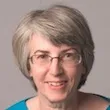Alumni Say Citizens' Voices Will Be Central in Propelling Egypt Forward

Mara Revkin '09 and Ann Lesch '66, both based in Cairo, have written extensively about the unrest in Egypt after witnessing the political upheaval first-hand. Revkin, a student at Yale Law School, writes in the Atlantic Council's EgyptSource blog that a shift in leadership tactics is necessary to create progress.
"Egypt's fractured political forces cannot afford to waste time blaming one another," she says. "It is now time for the Brotherhood and Egypt's new interim government to stop using the threat of street mobilization as a bargaining chip in conflicts that must ultimately be resolved through dialogue and political institutions-not mob violence."

Ann Lesch '66
Lesch, associate provost for international programs at The American University in Cairo, agrees that a more inclusive political dialogue is necessary.
"Carefully crafted policies need to acknowledge the weight of Islamist trends within a restored democratic structure," she says, writing for the Foreign Policy Research Institute. "Liberals also need to contain the rivalries that have weakened their effectiveness and work at the grassroots level to build enduring political structures."
Revkin has also chronicled the situation in Egypt on her website, as well as in various publications, including Foreign Affairs and on her Twitter account (@MaraRevkin). As part of her research on the gangs and violence in Egypt that thrived under President Mohamed Morsi, as she writes in Foreign Affairs, Revkin photo-documented the weapons she encountered at the home of an arms dealier in the Cairo neighborhood of Ain Shams.
Revkin was a political science major at Swarthmore and graduated with High Honors. She expects to complete her J.D. in June 2015.
Lesch, who has lived in Egypt for nearly 10 years, graduated with Honors from Swarthmore and holds a Ph.D. from Columbia University. She was first introduced to Cairo in 1968 during the first intensive summer session at AUC's Center for Arabic Study Abroad.
"That was a very different time, of course," she recalled last year in the Swarthmore College Bulletin. "Cairenes were still in shock from the defeat of the June War, and with all the censorship going on, everybody was afraid to talk politics."
The road toward progress in 2013 will be an inherently different one, Lesch writes. "People are anxious and uncertain, but they will not forget or relinquish the revolution's call for dignity and freedom," she says. "Their new-found voice will be crucial in propelling Egypt forward in the coming months and years."



